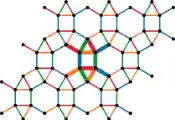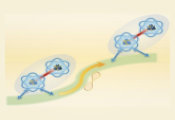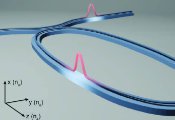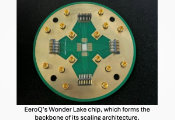Announcing the Simons Collaboration on Probabilistic Paths to Quantum Field Theory
August 13, 2025 -- The Simons Foundation is pleased to announce the launch of the Simons Collaboration on Probabilistic Paths to Quantum Field Theory. Scott Sheffield of the Massachusetts Institute of Technology will direct the new collaboration.
The collaboration will bring together experts in probability, analysis and mathematical physics to work on problems related to quantum field theory (QFT), a theoretical framework uniting the principles of classical field theory, quantum mechanics and special relativity. Collaboration members will work toward a unified probabilistic foundation for quantum field theory in Euclidean space.
“This is an exciting time for the mathematical side of QFT, with many new mathematical tools becoming available,” Sheffield says. “I am very impressed by the recent work of my collaborators and very excited to work with them on further advances.”
In recent decades, substantial advances in stochastic analysis and random geometry have introduced powerful probabilistic tools for rigorously addressing non-perturbative aspects of QFT. Conformally invariant processes like the Schramm–Loewner evolution allow analysis of the fractal structure of field theories, the theory of regularity structures offers insights into field singularities, and multiplicative chaos provides a mathematical foundation for Liouville quantum gravity. Frameworks such as the mating-of-trees approach exemplify how these tools can be fruitfully combined, yielding deep, rigorous results in statistical physics.
By developing a unified probabilistic foundation for Euclidean QFT, the Simons Collaboration on Probabilistic Paths to Quantum Field Theory aims to enable non-perturbative analysis of central models and advance the interface between QFT and mathematics.
Simons Collaborations in Mathematics and the Physical Sciences bring together groups of outstanding researchers to address topics of fundamental scientific importance. Collaborations receive up to $2 million per year for an initial period of four years, including indirect costs, and may be extended for an additional three years. The collaboration will be funded by grants from Simons Foundation International administered by the Simons Foundation.




































